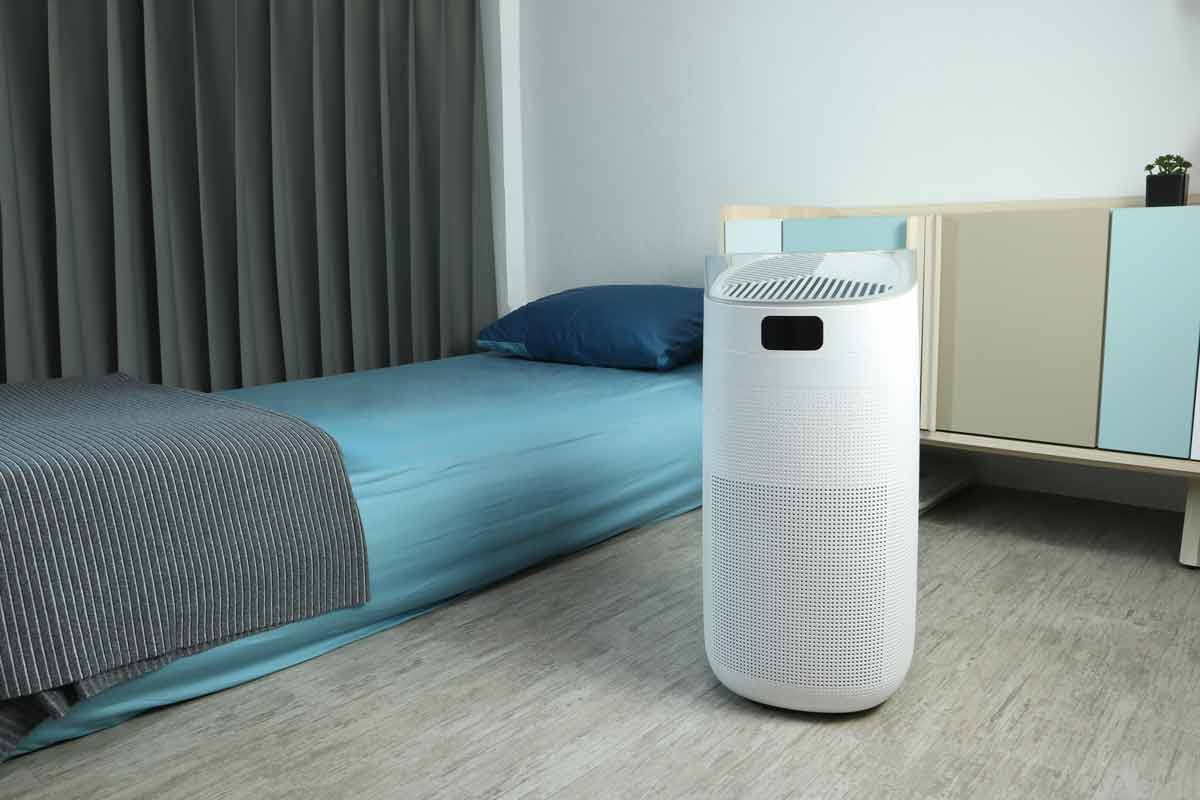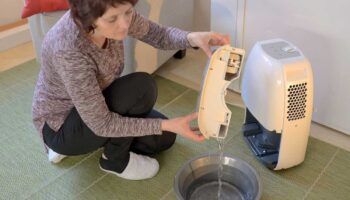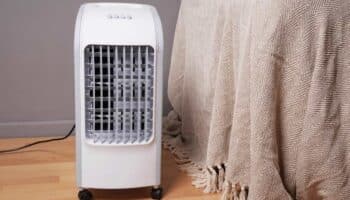Are you involved in a tug-of-war of sorts with your AC? You want it on, but it has other ideas. So how do you stop a portable air conditioner from turning itself off?
First of all, you need to understand why it’s shutting off. Armed with that info, you can fix the cause and stop the process—because sometimes, the shutoff is a safety feature.
Portable ACs can turn themselves off for a variety of reasons—power supply issues, timer settings, full water tank, obstructed airflow, malfunctions, dirty filters, and more. There’s usually an obvious reason, but if not, it might be a good idea to contact the manufacturer or an HVAC technician.
Why Trust Us? This article was written by Craig Anderson & Alan Stephens.
Craig has helped thousands of homeowners repair their appliances since 2016.
Alan is our resident HVAC expert with 20+ years of experience. Holding many HVAC certifications, Alan runs his own HVAC company, Eco Green Air Inc, out of North Carolina.
What You’ll Need
You probably won’t need all of these, but it’s a good idea to have them handy if necessary.
- Soft cloth or brush
- Warm water and soap
- Surge protector
- New power cord
Why Your Portable AC is Turning Itself Off – And How to Fix It
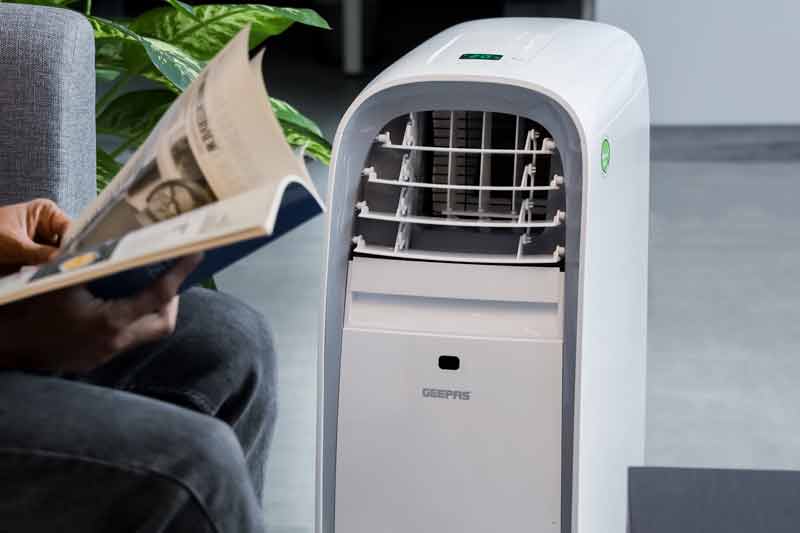
We have nine reasons for an air conditioner to shut off. Some of them are over safety concerns and others because you may have inadvertently set it up to do so. Either way, it’s usually an easy fix.
However, before proceeding, it’s important to note that we’re talking about your air conditioner shutting itself off entirely, not just the compressor stopping when your set temperature is reached. If that’s what’s happening to yours, I’ll address it in #9.
#1 Overheating
If the internal temperature of your portable air conditioner rises to an unsafe level, the unit might turn itself off as a safety precaution.
There are a couple of reasons this could happen — you’re operating it in an extremely hot environment, your air filters or coils are dirty, or for some reason, ventilation is inadequate.
Dirty filters will impact airflow, and, in some cases, that may cause the fan motor to overheat. Additionally, dirty coils can make your air conditioner run for longer periods, until it eventually overheats and shuts down.
Step 1
You may have more than one filter in your portable air conditioner, so you’ll need to check them all. If they are dirty, they either need to be replaced or cleaned depending on whether your model uses permanent or replaceable filters.
Step 2
Check your user’s manual for the type and size of the replacement filter. If you have a permanent filter, they can be cleaned with warm water and mild soap, such as dish soap or hand soap.
Step 3
If the problem is with your coils, unplug your air conditioner and access them. Note that some portable air conditioner models do not allow access to the condenser coil, but you may be able to dust them somewhat through an exterior vent.
If you have access, use a soft brush or cloth to remove any excess dirt, and then warm water and soap or a can of coil cleaner to thoroughly clean them off.
#2 Power Supply Issues
Your air conditioner may shut itself off if there’s a power surge or fluctuation in the electrical supply. It can also occur if the unit is connected to an overloaded circuit or if the power cord is damaged.
Step 1
Many appliances have a safety feature that will shut them down in the event of a power surge since the heat generated can damage electrical components.
You can use the surge protector, as this will protect your air conditioner against random surges.
Step 2
Check to make sure that your air conditioner is running on a circuit that has sufficient amperage. If the circuit is overloaded, your breaker will trip, and your air conditioner will turn off.
If your circuit is overloaded, you’ll need to use a different outlet.
Step 3
Do a visual inspection of the power cord. Is it frayed, scorched, or is there any visible damage? If so, it needs to be replaced.
#3 Timer Settings
A lot of portable air conditioners come with a timer function that allows you to set specific operating times. If the timer is activated and reaches your desired time, the unit will turn off.
Step 1
Check and reset any timer settings as necessary.
#4 Full Condensate Tank
If you’ve allowed your condensate tank to fill up, some air conditioners have an automatic shut-off feature to prevent the water from overflowing.
Step 1
Check for a full reservoir and empty it if necessary.
Step 2
If it’s unusual for your reservoir to be full, check for a clog in the drain hose or drain spout and clear if necessary.
#5 Obstructed Airflow
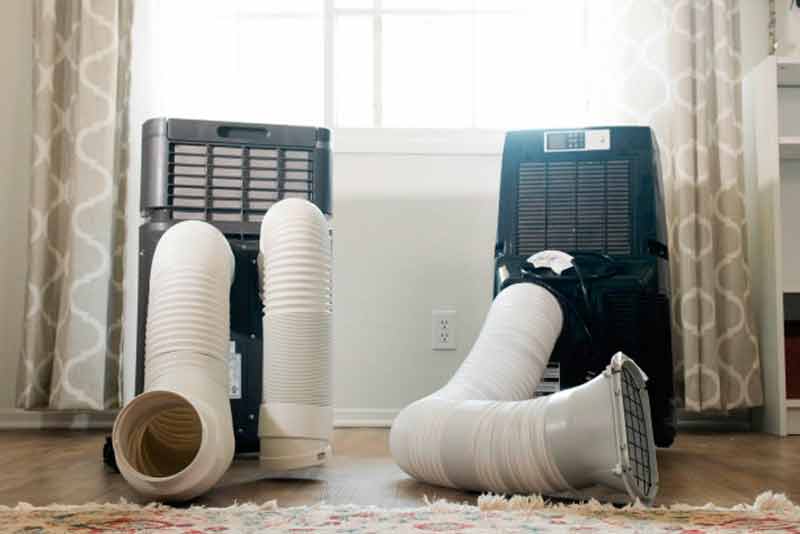
Another cause for overheating — which we talked about back at #1 — is a lack of airflow. Most portable air conditioner manufacturers recommend at least 2 to 3 feet of unobstructed space around the unit. That means it can’t be up against furniture, walls, or anything else.
Solution:
Check your user’s manual for the recommended clearance around your air conditioner and then adjust its positioning as necessary.
#6 Malfunctioning Components
As a safety precaution, your unit may shut down if it senses that any of the internal components are faulty, such as a defective thermostat, sensor, or even your compressor.
Solution:
Spend some time testing to make sure that all aspects of your air conditioner are working as they should — other than the unexplained shutdowns.
If it seems that the compressor, the thermostat, and all sensors are working as they should, there’s likely another reason for your AC to be turning itself off.
#7 Filter Maintenance Reminder
How vigilant are you when it comes to filter maintenance?
Some units have a filter maintenance reminder feature. When the filters get dirty and are in need of cleaning or replacing, the unit may shut off and display an alert — or beep — indicating there’s a need for maintenance.
Solution:
Whether you have one or multiple filters in your unit, check to see if they are in need of replacing or cleaning.
#8 Low Refrigerant Levels
Finally, if refrigerant levels drop too low, not only will it affect the unit’s cooling performance it can also prompt your air conditioner to shut itself off to protect the compressor and prevent further damage. It may even stop your air conditioner from turning back on.
Solution:
You can’t and shouldn’t attempt to deal with refrigerant yourself. Please contact a certified technician to check refrigerant levels.
#9 Thermostat Settings
Note. This last one addresses your portable ACs compressor shutting down, not the entire unit.
Once your desired temperature is reached — whatever you have your thermostat set to — the compressor will shut itself off in order to maintain your desired cooling temperature.
Step 1
Set a small, digital thermometer close to your air conditioner. Check to see if your compressor stops running — you’ll hear it — when the temperature on it reaches your temperature setting on the thermostat. If they match, this is a normal function of your air conditioner.
Step 2
Another indicator that this is just a normal function of your AC, is a clicking noise when your compressor shuts off. That’s the sound of a relay switch, which opens and closes when your compressor turns on and off.
Conclusion
As you can see from the above, there are a number of reasons why your air conditioner could be turning itself off. Having said that, if yours is repeatedly shutting down without any obvious reason, check your user’s manual for the manufacturer’s specific troubleshooting tips, and if all else fails consider contacting them for further assistance.
As far as the typical reasons go, we discussed the following:
- Overheating
- Power supply issues
- Timer settings
- Full condensate tank
- Obstructed airflow
- Malfunctioning components
- Filter maintenance reminder
- Low refrigerant levels
- Thermostat settings
Hopefully, the information above helped you find and address your specific problem. While you’re here, why not check out our related posts below? Perhaps we can help you with something else.
